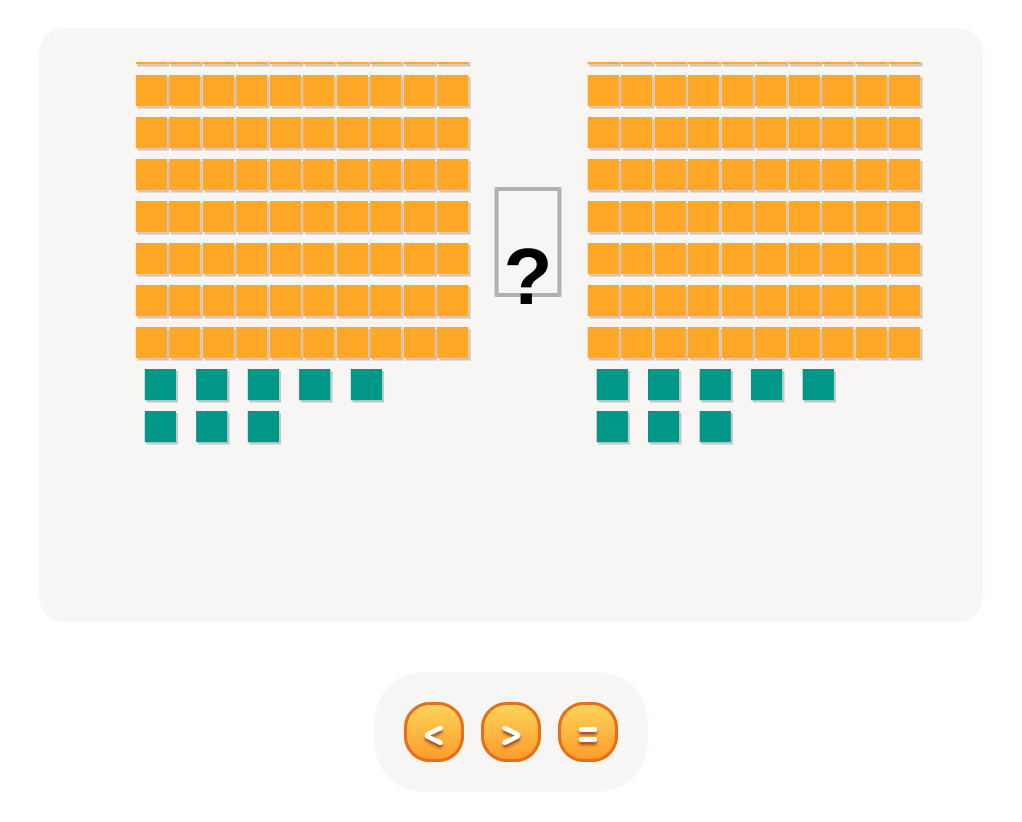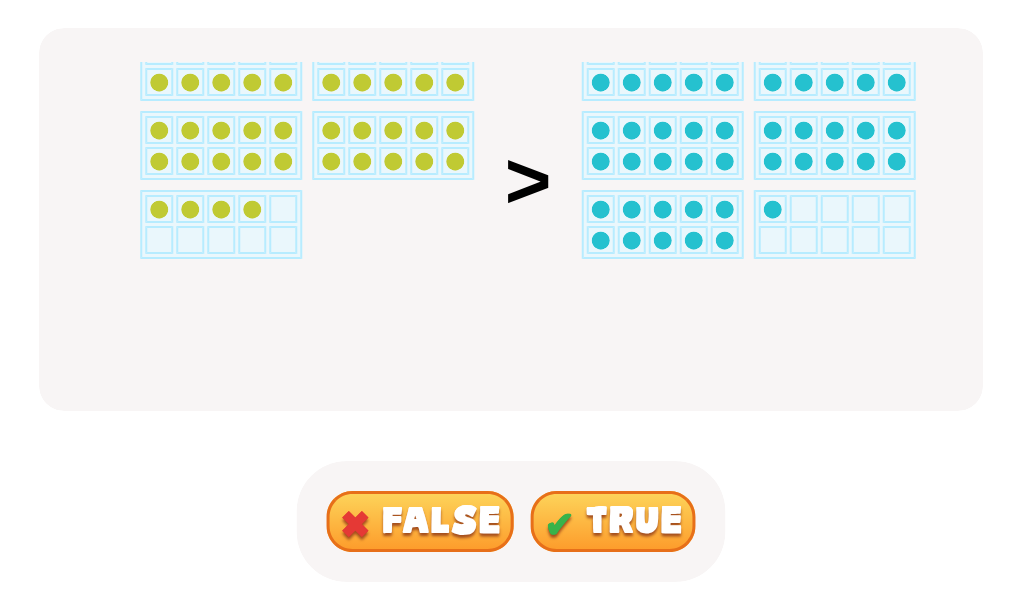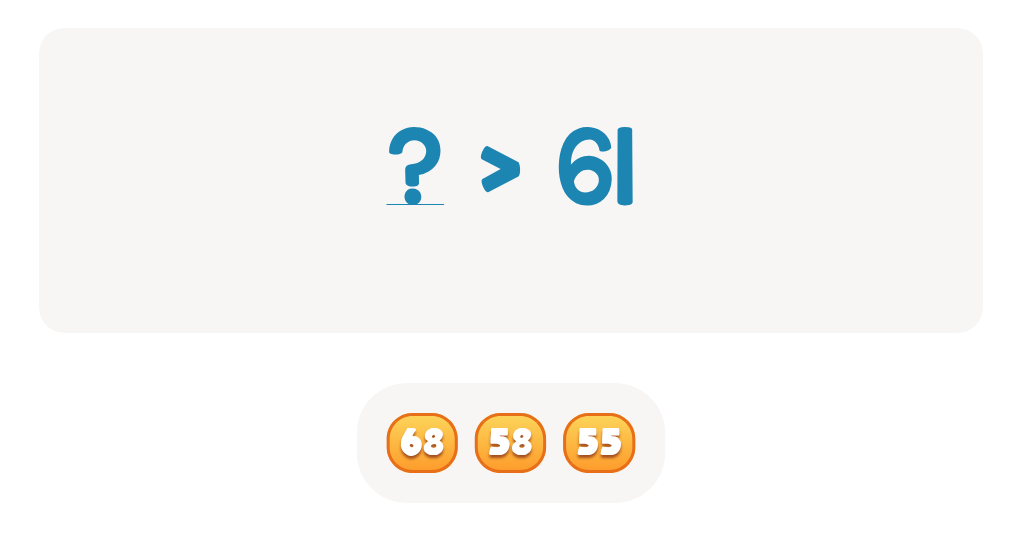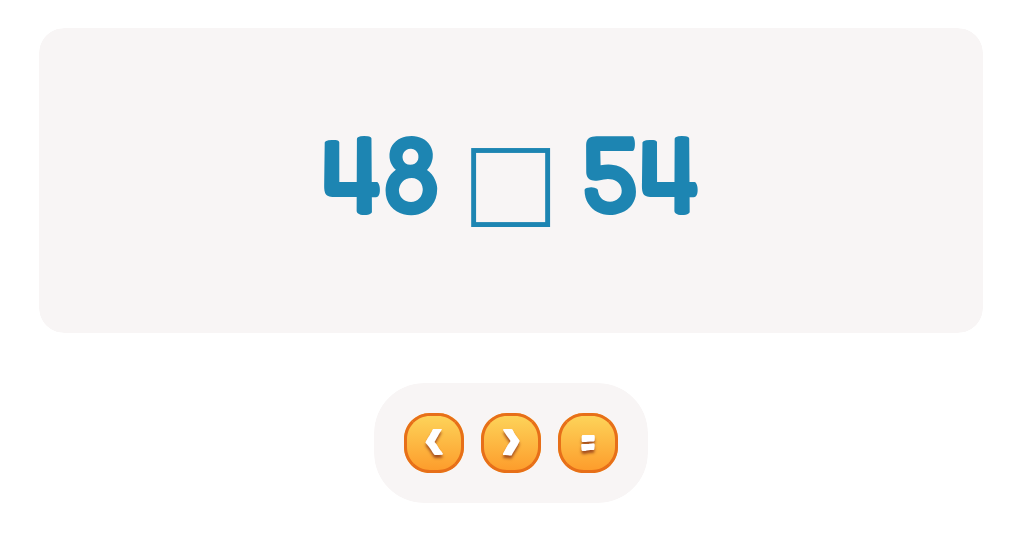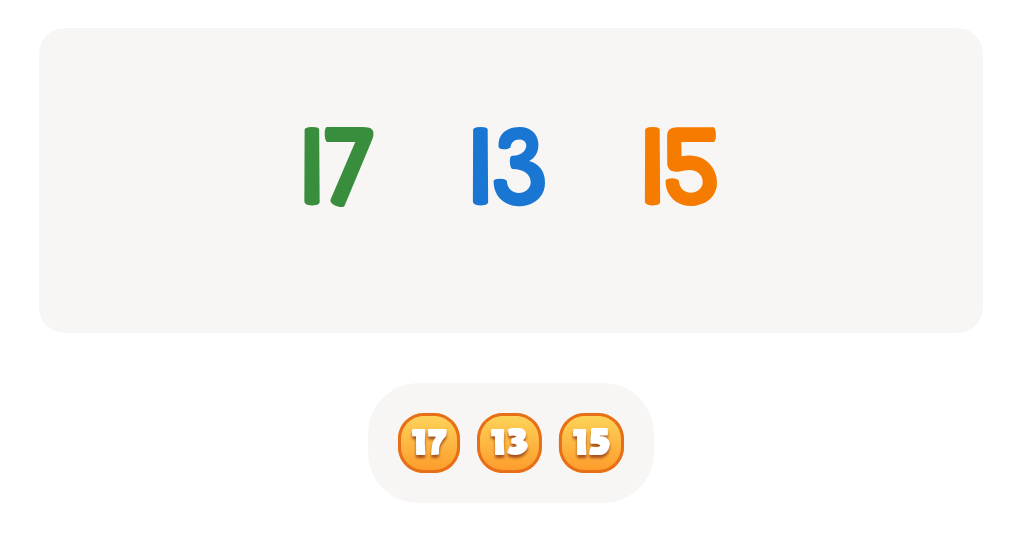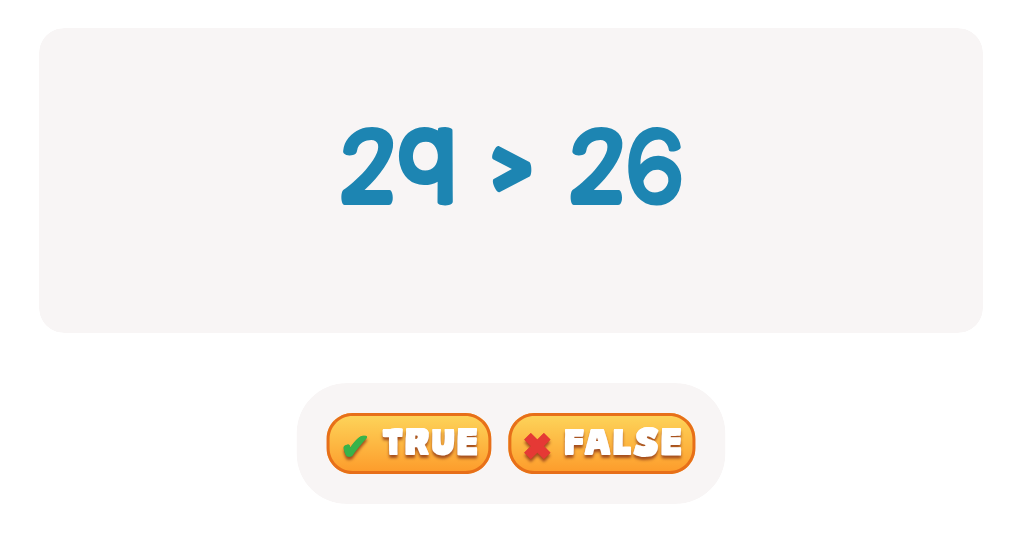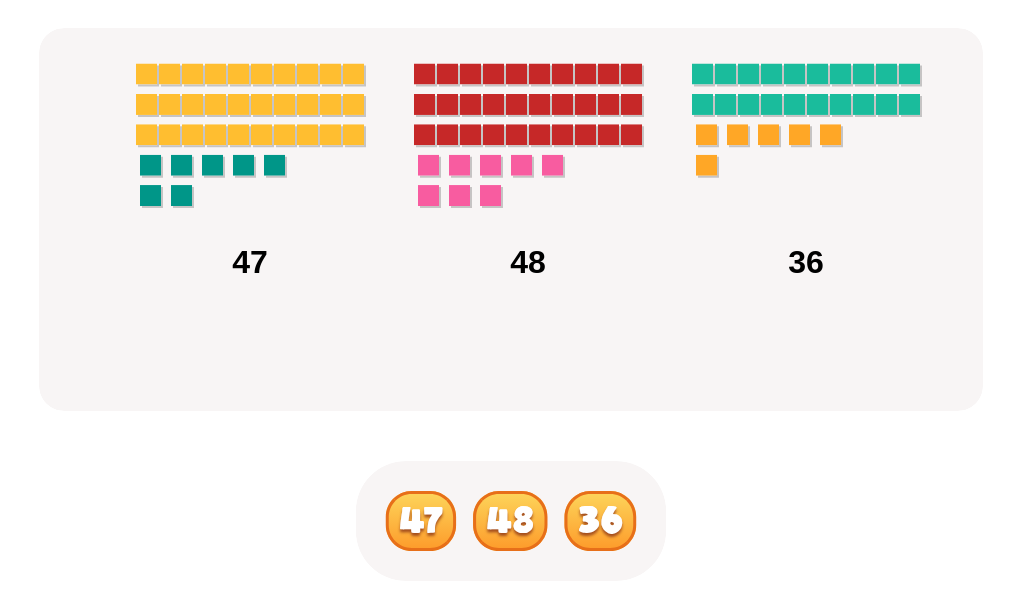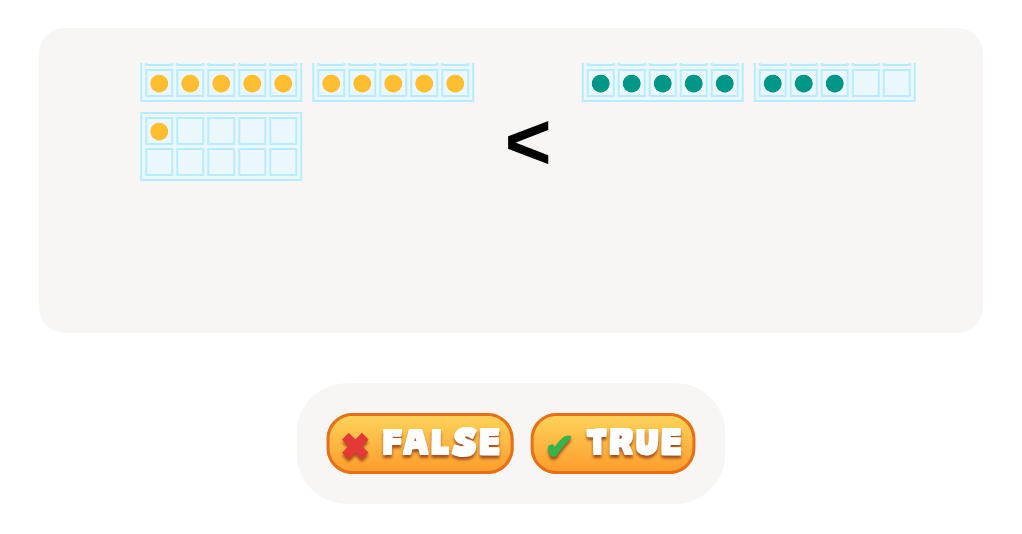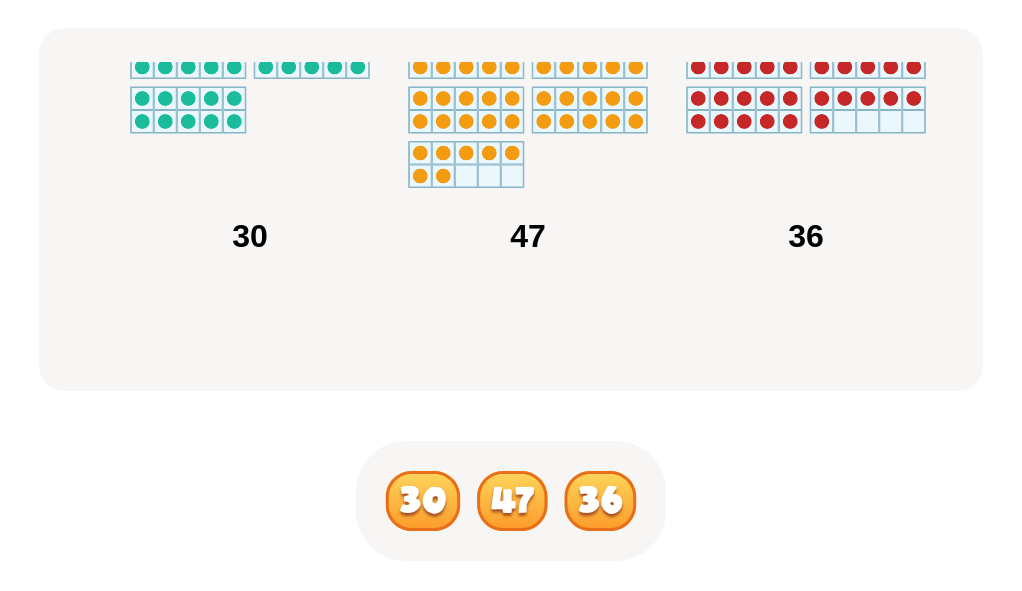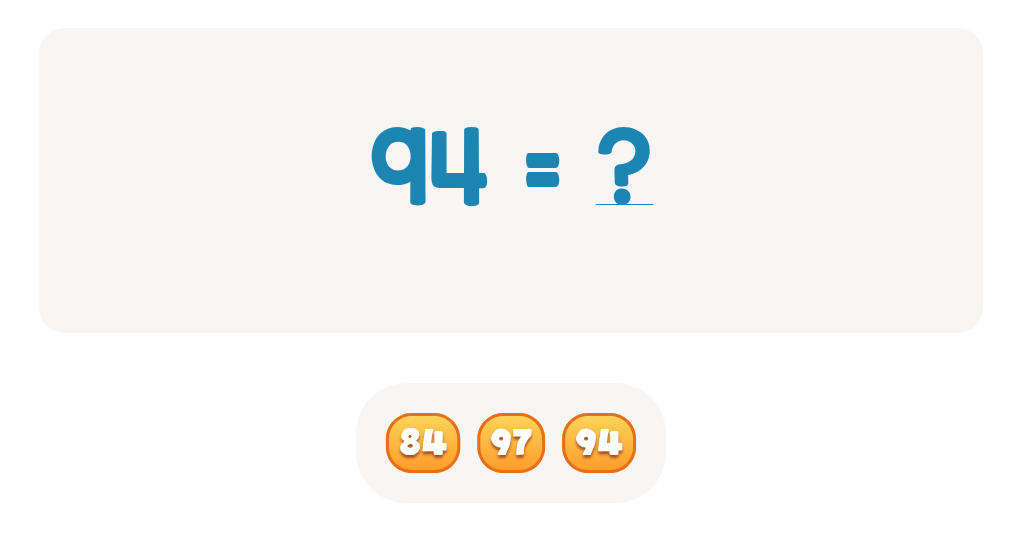Improving counting skills Comparing Numbers Worksheets for Ages 5-6
3 filtered results
-
From - To
Boost your child's mathematical abilities with our "Improving Counting Skills Comparing Numbers Worksheets" designed for ages 5-6. These engaging, printable worksheets help young learners master the art of comparing numbers through fun, interactive activities. Your child will explore number relationships, improve their counting skills, and develop a strong foundation in basic math concepts. With colorful illustrations and age-appropriate exercises, these worksheets encourage confident learning while making math enjoyable. Perfect for at-home practice or classroom use, our resources are tailored to support early learners in achieving academic success. Help your child excel in math and watch them thrive!
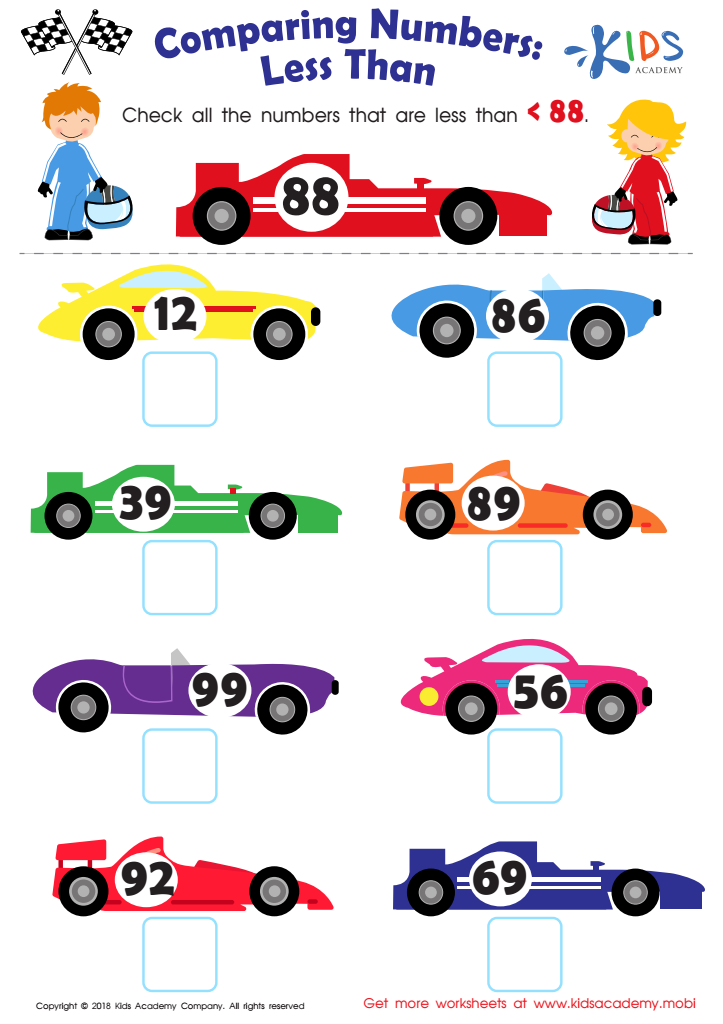

Less Than Worksheet
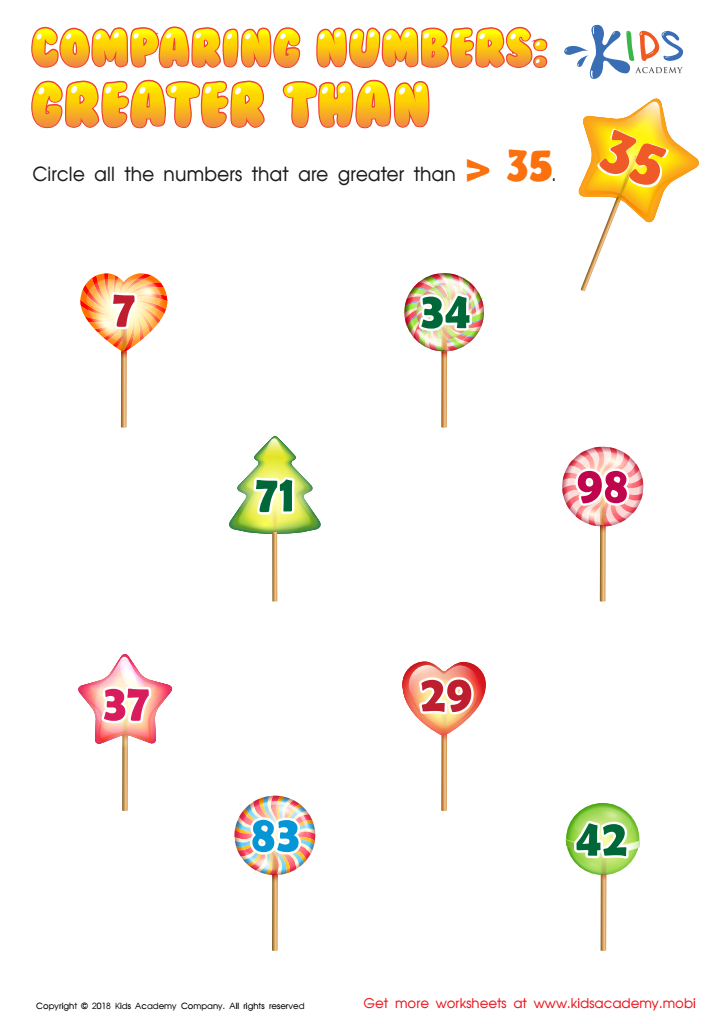

Greater Than Worksheet
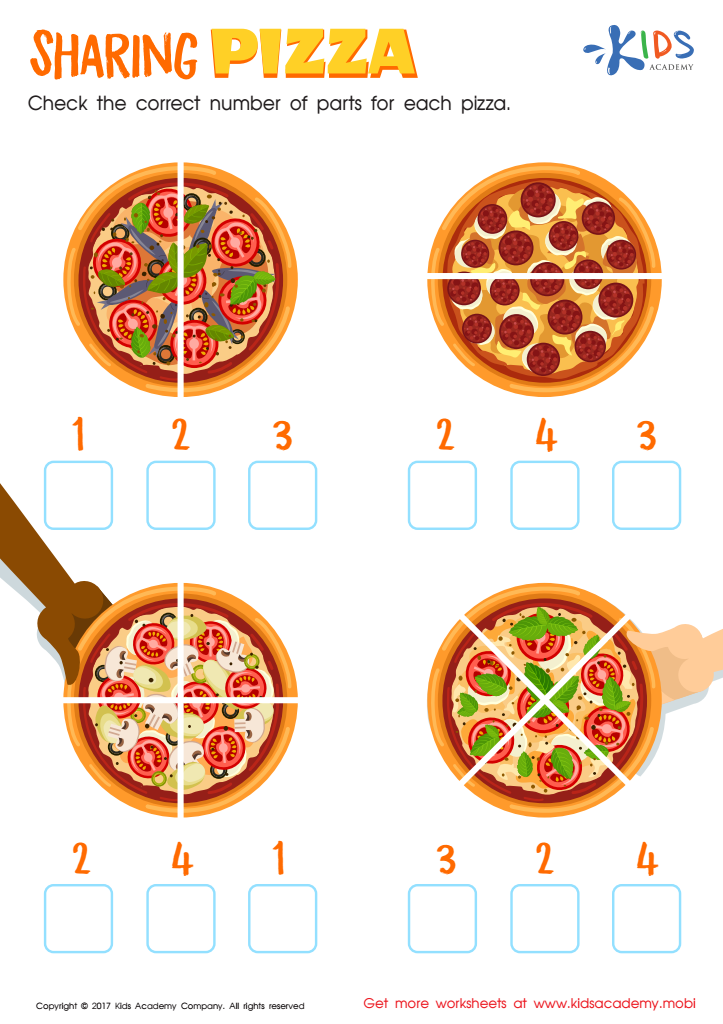

Sharing Pizza Worksheet
Improving counting skills and understanding number comparison is crucial for children aged 5-6, as it lays the foundation for their future mathematical learning and cognitive development. At this age, children are beginning to grasp the concept of numbers and their value, which is essential for their academic journey.
Parents and teachers should care about these skills because they directly impact children's confidence and competence in mathematics. Counting helps children develop one-to-one correspondence, which is vital in understanding basic operations such as addition and subtraction. These early skills foster logical thinking and problem-solving abilities, allowing children to approach more complex mathematical concepts with ease in the later stages.
Additionally, comparing numbers teaches children to recognize patterns and relationships, thus enhancing their analytical thinking. When children understand concepts like greater than, less than, or equal to, they gain a deeper comprehension of numbers and can apply this knowledge in everyday situations, such as sharing or grouping objects.
Furthermore, strong counting and comparison skills can lead to improved performance in school, setting a positive tone for their entire educational experience. By prioritizing these skills, parents and teachers equip children with vital tools for their lifelong learning journey.
 Assign to My Students
Assign to My Students
